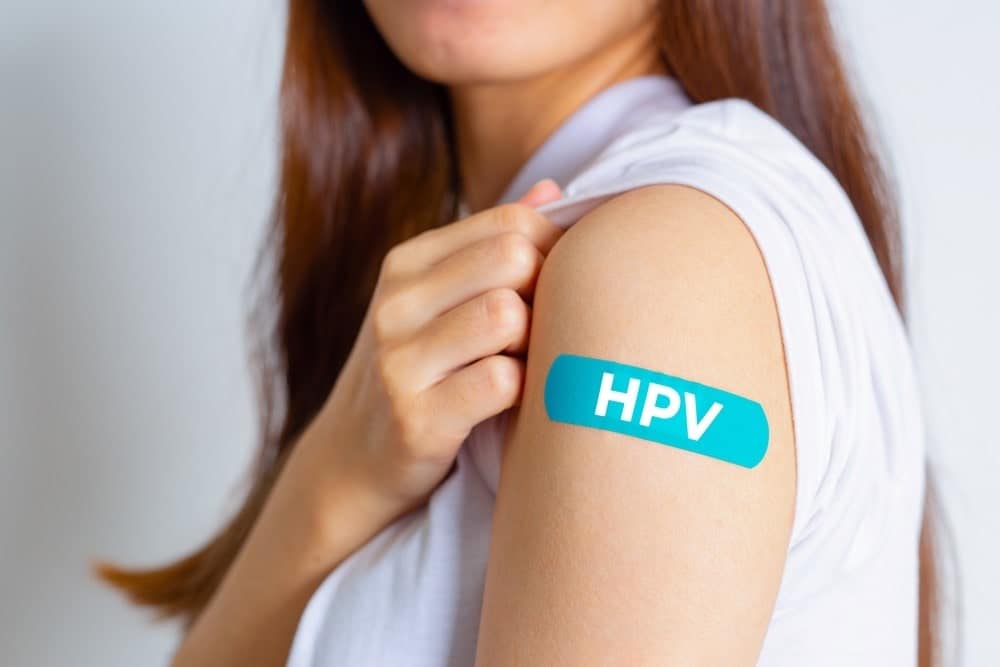Being told you have an ovarian cyst often leaves you with more questions than […]

HPV is short form for human papillomavirus, which is a common viral infection that will infect most people in their lifetimes. It is transmitted through intimate contact and is extremely common in people who have had sex before.
HPV infection does not usually manifest in any systems, and like Covid-19, has many different strains.
“Low risk” HPV are non cancer-causing and typically cause genital warts.
“High risk” HPV can result in pre-cancerous changes in cervical cells which may eventually lead to cervical cancer if persistent and left untreated. Other gynaecological cancers associated with HPV infection include vaginal and vulval cancers in women, and penile cancers in men. Types 16 and 18 are high-risk types that are known to cause about 70% of cervical cancers, whilst types 6 and 11 are low-risk types that usually cause non cancerous genital warts.
HPV vaccines work by preventing infection by certain types of HPV. The vaccine is based on virus-like particles (VLPs) that are formed by HPV surface components, and does not contain any live or killed virus – hence there is no chance that the HPV vaccine can cause cervical cancer nor any HPV-related diseases.
HPV vaccine protects against certain strains of HPV, and has been shown to be highly effective in its protection against cervical cancer – a study published in the Lancet[1] showed that the HPV immunization programme in England resulted in a substantial reduction in cervical cancer and incidence of CIN3 (severe pre-cancerous changes) in young women, with near complete elimination of cervical cancer in women born since 1st September 1995.
The HPV vaccine is a safe vaccine with minimal side effects. The most common side effects are pain, swelling/redness at the injection site, and temporary headache.
| Type | Details |
| Cervarix |
|
| Gardasil-9 |
|
HPV vaccine is best administered between ages 9 to 26 years old but is licensed up to 45 years of age, and can be given to both girls and boys. It is best given before one’s sexual debut, and is a 2-dose regime for girls/boys aged 9 to 14 years, and a 3-dose regime for girls/boys aged 15 years and above.
The immunity has been shown to be long-lasting, and there is no current evidence that booster shots are required. It is important to note, however, that protection is not 100% even if you are fully vaccinated and hence it is still recommended that you have regular cervical cancer screening.
Deciding which HPV vaccine to get is an individual choice, but if you are looking for the most comprehensive coverage, then it is advisable to go for the Gardasil-9 vaccine. Remember, ultimately getting vaccinated is better than being completely unvaccinated.
Yes, you can still take the HPV vaccine after 26 years of age, and even after you have started having sex. Although HPV vaccination in this case provides less benefits as you may already have been exposed to HPV, it does give some level of protection compared to not getting vaccinated at all.
You need to know that getting the vaccine won’t cure HPV if you already have it. However, even if you are infected with 1 strain, the vaccine will serve to protect you against other strains.
In that light, the US Food and Drug Administration[2] announced in 2018 that it had expanded the approved age for HPV vaccine up to 45 years old for both men and women. It is worthwhile discussing with your doctor if you are considering getting the HPV vaccine after 26 years of age, to understand the pros and cons of the vaccine.
References
Being told you have an ovarian cyst often leaves you with more questions than […]
Chronic bloating. Lower back pain. Fatigue that lingers even after rest. These are symptoms […]
Many women live with Polycystic Ovary Syndrome (PCOS) without realising fact from fiction. This […]





Aster Gynaecology © | All Rights Reserved.